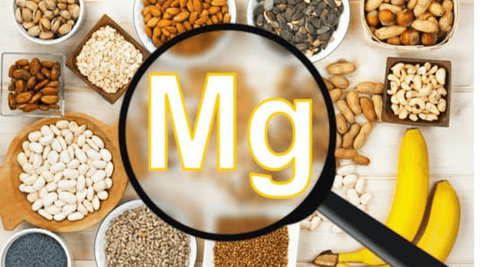Magnesium is essential for energy, muscles, and nerve function, but modern diets may not deliver as much as you think. From farming practices to food processing, several hidden factors can quietly reduce your daily intake.
Food Processing & Cooking – How Preparation Reduces Magnesium
One of the main reasons for lower magnesium intake comes down to food processing. For example, refining grains like wheat and rice removes the outer layers where much of the magnesium is stored. Sugar refining also strips out minerals completely. Even at home, the way we prepare meals can make a difference, boiling vegetables can cause minerals to leach out into the cooking water, reducing their final magnesium content.
https://www.ancient-minerals.com/transdermal-magnesium/dietary

Soil Depletion & Farming Practices – Why Crops Contain Less Magnesium Today
The mineral content of crops is directly linked to the health of the soil they grow in. Over the years, intensive farming practices have affected this balance. One of the main reasons for lower magnesium intake comes down to food processing. Fertilisers and pesticides may also change how much magnesium plants can absorb. On top of that, factors like heavy rainfall and acid rain can wash magnesium away, leaving soils less rich than before.
https://pmc.ncbi.nlm.nih.gov/articles/PMC10969708/

Lifestyle Factors – Habits That Affect Magnesium Levels
It isn’t only food production that plays a role. Everyday habits can also influence magnesium levels in the body. Higher intakes of caffeine and alcohol, for example, can change how minerals are processed. Some commonly used medications are also known to affect magnesium balance, making it harder for the body to retain as much as it takes in.

The Bigger Picture – Why Modern Diets May Fall Short
When you add these factors together - processing, cooking, soil changes, and lifestyle influences - it becomes clearer why many modern diets may not provide the same magnesium levels as in the past. That’s why paying attention to magnesium-rich foods, like nuts, seeds, leafy greens, and whole grains, can be so valuable.
For those who find it difficult to consistently reach recommended levels through diet alone, high-quality food supplements can provide reliable support. Magnesium supplements are available in a range of well-absorbed forms and can help bridge nutritional gaps, supporting energy, muscle function, and overall well-being. When taken as part of a balanced lifestyle and ideally with guidance from a healthcare professional, supplements can help mitigate the symptoms linked to low magnesium and give added peace of mind.

Stacie Henson has been working at Metabolics for three years and has immersed herself in learning more about Metabolics products and nutrition generally.
She has completed basic nutrition courses and recently completed a Level 4 Nutrition Diploma. Stacie is currently studying for a Level 4 Transformational Nutrition course to further her experience and knowledge to better support Metabolics customers.





